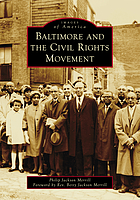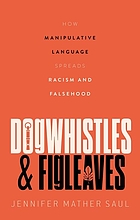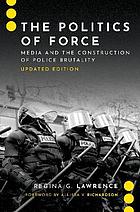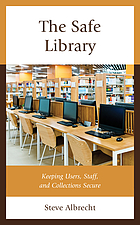Here is The Friday List! Every week, new books are arriving at RLB Library and to keep you up-to-date on what has come in, we’ll be posting the most recent 30 days of arrivals every Friday. The link below will take you to a catalog listing so that you can explore and find titles that interest you. Be sure to check back regularly to see what else has arrived!
THE FRIDAY LIST
If you want some ideas on what to read, here are some highlights, which can be found in the New Books kiosk by the information desk on the first floor of the library (eBooks can be accessed through the RLB website):

Baltimore and the Civil Rights Movement (eBook), Philip J Merrill, 2023
In all aspects of life, from politics and education to religion and business, the Black Baltimore community has been a leader for civil rights. From the 19th century until the 1970s, Baltimore has been at the forefront of various civil rights movements. Black Baltimoreans helped establish the Niagara Movement, the precursor to the National Association for the Advancement of Colored People (NAACP), and had one of the most active NAACP branches, counting among its members pastors, politicians, entrepreneurs, educators, athletes, musicians, and others. Meritorious services were rendered by Rev. Harvey Johnson; William Ashbie Hawkins; Lillie Carroll Jackson; Lillie’s daughter Juanita Jackson Mitchell; Juanita’s husband, Clarence Maurice Mitchell Jr.; Walter Thomas Dixon; Enolia McMillan; Lena King Lee; and countless others who created a proud legacy of activism in the Monumental City.

Dogwhistles and figleaves : how manipulative language spreads racism and falsehood, Jennifer Mather Saul, 2024
It is widely accepted that political discourse in recent years has become more openly racist and more filled with wildly implausible conspiracy theories. Dogwhistles and Figleaves explores certain ways in which such changes – both of which defied previously settled norms of political speech – have been brought about. Jennifer Saul shows that two linguistic devices, dogwhistles and figleaves, have played a crucial role. Some dogwhistles (such as “88,” used by Nazis online to mean “Heil Hitler”) serve to disguise messages that would otherwise be rejected as unacceptable, allowing them to be transmitted surreptitiously. Other dogwhistles (like the 1988 “Willie Horton” ad) work by influencing people in ways that they are not aware of, and which they would likely reject were they aware. Figleaves (such as “just asking questions”) take messages that could easily be recognized as unacceptable, and provide just enough cover that people become more willing to accept them. Importantly, these work against the background of a divided public. They are particularly effective in influencing people who are conflicted yet malleable–those who don’t want to be racist, for example, but are willing to be convinced that something which seems racist really isn’t. Saul shows how these dogwhistles and figleaves have both exploited and widened existing divisions in society, and normalized racist and conspiracist speech.

The politics of force : media and the construction of police brutality, Regina G Lawrence, 2023
Published over twenty years ago, Regina G. Lawrence’s The Politics of Force was the first scholarly book to look at the way in which media coverage of unexpected, dramatic events shaped public consciousness about important social and political problems. In the intervening years, the empirical and theoretical contributions of The Politics of Force have become more significant, not only because police brutality is back in the news, but because the media system itself has changed. In this updated edition, Lawrence contextualizes and extends these contributions, while including a closer look at race and racial justice in incidents of police use of force. Reflecting on the context in which the book was written–a time when race and policing received limited coverage in the news and in the field of political communication–Lawrence considers what has changed in media studies since the year 2000, what things haven’t changed, and why. Expanding on her landmark publication, Lawrence provides an accessible update on news production dynamics and police use of force for a new generation of scholars, students, and activists.

The safe library : keeping users, staff, and collections secure, Steve Albrecht, 2023
This book provides advice and support to help library employees best deal with sexually harassing patrons, unruly groups of students, thieves, Internet hogs, and others who can disrupt the safe library environment. It offers best practices for helping patrons experiencing homelessness to follow library rules while staff treat them with dignity and respect; helping staff stay motivated to deal with the same challenging patrons and their accompanying demands, day after day; protecting smaller or rural library facilities and keeping one-room, one-librarian facilities safe; working more effectively with onsite security guards and responding law enforcement officers, to create more consistent responses; and using daily, monthly, quarterly, and yearly facility security checklists to regularly assess the state of your buildings and IT systems.